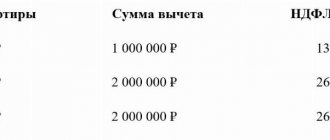Experts spoke about the pitfalls when buying a secondary home
Properties on the secondary housing market can have many pitfalls that are not so easy to recognize. Lawyers and realtors told Izvestia on Friday, July 9, how to identify risky transactions in the real estate market.
Fraud or mental problems?
All risky transactions in the housing market can be divided into three categories, said Stanislav Galkin, director of the real estate agency OBMENKVARTIR.RF.
The first category is openly fraudulent schemes, when the organizers of the transaction deliberately commit deception in order to obtain financial gain. For example, they involve people suffering from mental illness in the transaction and persuade them to sell their real estate. As a result, such a transaction is challenged on the basis that the seller did not and could not understand the consequences of his actions due to mental illness. The home is eventually returned to the seller, and most of the money remains with the scammers.
You can protect yourself from such actions only after a thorough check of documents, sellers and the history of the apartment.
Maternal capital
The second category of risky transactions are cases when the seller knows that there are factors that could lead to a challenge to the transaction, but for some reason hides them from the buyer, said Stanislav Galkin.
The family was convicted: the odious swindler received a substantial sentence
Black realtor Matthew Erman will go to a maximum security colony
For example, he sells an apartment for the purchase of which or for early repayment of the mortgage funds from maternity (family) capital were used. If the parents sold such an apartment without giving shares to their children, the transaction may subsequently be challenged by a statement from the competent authorities or even by a claim from the children who have grown up and learned that their rights were violated.
This also includes transactions for the sale of housing, during the privatization of which persons who have the legal right to do so were not granted ownership rights. Especially if the rights of persons who were minors at that time were violated.
If you see that the apartment was purchased through a paid transaction, especially with a mortgage loan, request a certificate stating that maternity capital funds were not used - even if the seller’s passport does not contain a record of the presence of children.
“We once had an interesting case when it turned out that the children were not indicated in the passport, but the maternity capital was used. If you have suspicions that at the time of purchasing the apartment the seller was married (for example, the purchase was old, but the passport is “fresh”), request a certificate from the registry office that the seller was not in a registered marriage at the time of purchase,” the realtor advised .
The most dangerous deals
The third category of dangerous transactions refers to cases where the parties did not know and could not know about the presence of factors that could subsequently lead to termination of the transaction. The most common category of such transactions is the sale of an apartment that was inherited, says Stanislav Galkin. When registering an inheritance, the interests of persons who are legally entitled to their share may not be taken into account, and it is not possible to find out their existence. For example, a man dies, his children enter into inheritance rights and sell the apartment. Then it turns out that the deceased had another child (or several children), the existence of which the family of the deceased, as well as the notary who formalized the inheritance, did not know and could not know. And these new heirs are challenging the deal.
This category also includes the consequences of the recently adopted law on bankruptcy of individuals. According to the law, you can challenge a real estate sale transaction, even if the sale took place three years before the start of bankruptcy proceedings. Sometimes in the history of an apartment there are factors that can subsequently lead to the termination of all subsequent transactions and the presence of which the parties were not aware of when making the transaction. For example, once upon a time an apartment was sold using forged documents or during its sale the interests of third parties were infringed. After even a very long time, such a transaction can be terminated, as well as all subsequent transactions. In such cases, it is quite difficult to protect the buyer from the risks of losing the apartment.
In cars in front of the MFC
When preparing a purchase and sale agreement, an important factor is the financial terms of the transaction, the form of payment and calculation of the cost of housing, the transfer of money, which is recommended to be done in official places, for example in banks, said Yulia Savinykh, Skolkovo resident, General Director of Inkom LLC, President of MTK LLC.
“You definitely shouldn’t do this in cars in front of the MFC, in apartments that are for sale and in dubious offices of real estate agencies. Be sure to check all the powers of the director of the company, employees must have a power of attorney, the length of service of the company, the actual and legal addresses of registration of the company are important,” she advised.
Husband or accomplice
There is also a frequent practice of presenting false passports when accepting deposits and advances for the preparation of sales contracts, said Yulia Savinykh.
“I had a case when a young family came to the office wanting to sell an apartment under an agreement on the assignment of ownership rights. They presented the owner’s passport, the contract, and then it turned out that it was not the husband, but the wife’s accomplice, who was like two peas in a pod and came to the deal with his passport. Since then, I’ve also been checking passport photos,” she said.
Scheme with deposit
The purchase of an apartment on the secondary market can be overshadowed by a scheme when the seller asks the buyer to confirm the seriousness of his intentions in the form of a deposit, while the contract states that the deposit will not be returned if refused, said Olga Turenko, a lawyer at the Borodin and Partners law firm.
In what other cases should you not buy real estate?
It is impossible to completely eliminate risks when purchasing real estate, but they can be minimized, says Olga Turenko. In her opinion, you should not purchase an apartment if the seller has owned it for less than three years; agree to transactions by proxy. Among other things, she advises to beware of apartments that are too cheap, not to buy housing with children, the elderly, or disabled people registered in it, and to have the seller’s statements certified by a notary and not to skimp on insurance.
A problem may arise if the apartment is sold by proxy, said Nadezhda Korkka, managing director. The agreement is considered valid only until the end of the validity period or the moment of its cancellation. Often such documents are drawn up on behalf of incapacitated people, single pensioners, orphans, or even the deceased. However, in the latter case, the power of attorney will be invalid, even if its validity has not yet expired.
It is worth checking whether the rights of minors, as well as persons who were serving sentences at the time of privatization, were not violated, she added.
How do you still buy an apartment?
When purchasing a property without the participation of a recommended realtor or real estate agency, the most important thing is the legal and factual verification of this property, its exact address and location - sometimes scammers show one apartment and present documents for another, says Yulia Savinykh.
At the same time, the most important document when buying a home is an extract from the Unified State Register; it must be current in date and without any encumbrances on the rights of the owner. If there are encumbrances in the form of a mortgage, by virtue of the law the transaction must be completed with a specialist who will provide documented support for the process of repayment or transfer of the mortgage.
The director of the agency OBMENKVARTIR.RF recommends carefully studying the entire background of the apartment and, if possible, requesting information about the persons registered in it for the entire period. It is also a good idea to make sure that the seller is not experiencing financial difficulties that could prompt him to subsequently file for bankruptcy.
Stanislav Galkin also recommended checking before purchasing not only the seller’s passport (which is often forged), but also other documents: driver’s license, SNILS, international passport. After all, as a rule, fraudsters limit themselves to forging only one document.
It is also necessary to request certificates stating that the seller is not registered with a psycho-drug dispensary.
If the transaction is carried out under a power of attorney, you need to check its validity: call the notary who issued this power of attorney, check it in the register of canceled powers of attorney.
When preparing a purchase and sale agreement, the transfer of money should be made in official places, such as banks, advises the general director of Inkom LLC. It is necessary to check all the powers of the director of the company, employees must have a power of attorney, the length of service of the company, the actual and legal addresses of its registration are important.
The act of acceptance and transfer of the object is drawn up in simple written form with a mandatory inventory of furniture, equipment, and household appliances. It is mandatory to check housing and communal services charges, meters, their verification period and operational documents. In the purchase and sale agreement, it is important to stipulate the fact that the seller has received money and the absence of financial claims, Savinykh concluded.
In April, the Federal Chamber of Notaries reported that in 2019–2020, notaries prevented the commission of illegal actions in relation to property worth more than 639 million rubles in only 45 regions of Russia.
Over these two years, notaries, while certifying transactions in these regions, identified 680 cases of fraudulent activity. Scammers tried to notarize transactions, for example, to take possession of someone else's home.
Be careful, children
It is known that housing on the so-called secondary market is often cheaper than new buildings. But the risks of losing a newly purchased apartment and money with such a purchase are greater. Especially if the seller is a family with small children.
It is impossible to invalidate a transaction based only on Art. 167 Civil Code
Few people know that the consent of the guardianship authorities required for such transactions does not mean anything. More precisely, it does not protect against possible problems.
RG experts discuss the legal aspects of housing transactions in the “Legal Consultation” section
The fact is that guardianship only authorizes the transaction on the condition that the small owners will be purchased housing of equal value to the one being sold. And if this condition is not met, then the purchase and sale transaction that has already been carried out can easily be considered illegal.
Our story began in the Chelyabinsk region. There, a certain citizen decided to sell the apartment in which her two minor children were registered. Each of them owned 1/3 of the share.
My mother received written consent from the guardianship authorities for the sale. Giving consent, the guardianship put forward a condition - the apartment can be sold if another housing is purchased at the same time, in which the children will receive 1/3 of the share. The purchase had to be reported to government agencies within a month after the sale of the home.
And then events developed as follows. The deal was completed. The new owner of the apartment paid for the purchase in full and celebrated a housewarming party. But she was unable to live peacefully in her new apartment.
The reason turned out to be that the previous owner, contrary to the agreement, did not purchase a new apartment for the children, which was mentioned in the consent of the guardianship authority. That is, the citizen violated the condition specified in the permit. The guardianship department demanded that the transaction be declared invalid under Article 168 of the Civil Code of the Russian Federation. This article talks about a transaction that is contrary to the law.
The upset new owner tried to defend herself and went to court. She argued that the guardianship of the transaction was illegal in the first place because it did not say how to pay the minor sellers and did not specify into which account the money should be transferred in the name of the minors after the sale of their shares.
She also found the following argument: when issuing the permit, they did not find out the opinion of the children’s father, and she, as a buyer, was not informed that the seller had to simultaneously buy housing for minors.
The local city court agreed with the guardianship's arguments entirely. And he satisfied the claim of the guardianship department, invalidating the apartment purchase and sale agreement. The property was returned to the property of the previous owner and her children. Well, the plaintiff, who never became the full owner of the new apartment, was awarded compensation in the amount of the cost of housing.
In its decision, the city court referred to Article 167 of the Civil Code, which talks about the consequences of an invalid transaction. But the Chelyabinsk Regional Court overturned the decision of its city colleagues and made a new decision, denying guardianship, and at the same time the plaintiff.
According to the appeal, the fact that the previous owner did not buy housing for her children and violated agreements with guardianship does not make the apartment purchase and sale agreement illegal. According to the appeal, the transaction was completed in compliance with all procedures, in fact it was executed and there are no grounds for invalidity. At the same time, the position in the court was explained by the provisions of Article 168 of the Civil Code, to which the first instance did not refer.
The guardianship did not agree with such a refusal and went all the way to the Supreme Court of the Russian Federation. There they studied the materials of the dispute and did not agree with the conclusions of the regional court. At the same time, the Supreme Court immediately referred to two articles of the Civil Code - Article 168 “Transaction contrary to the law” and Article 173.1 “Transaction without the consent of a government agency required by law.”
The Supreme Court of the Russian Federation indicated that the court of first instance could not invalidate the transaction based only on Article 167 of the Civil Code. This article does not establish the grounds on which invalidity is recognized. But these grounds are provided for in other articles of the same code - 168 “Transaction contrary to the law” and Article 173.1 “Transaction without the consent of a government agency required by law.”
The guardianship allows the transaction with the apartment if the children are bought equal housing. Otherwise the deal will be canceled
The Supreme Court emphasized that in the first instance they did not refer to any of these articles, and the appeal not only did not correct this error, but also incorrectly interpreted the norms to which it referred. This is what the Supreme Court drew attention to - the court based its decision on an invalid version of Article 168 of the Civil Code of the Russian Federation.
The appeal should have clarified on what grounds the plaintiff is challenging the transaction, and depending on this, determine what circumstances are significant for the dispute and affect the validity of the transaction or indicate its nullity, the Judicial Collegium for Civil Cases of the Supreme Court indicated.
And the regional court did not take into account that, according to Article 173.1 of the Civil Code, special grounds are established for invalidating transactions made without the necessary consent of a third party, a body of a legal entity or a government agency or local government body. According to the plaintiff, there was no basis for concluding that the transaction was made with the consent of the guardianship, because the defendant did not obtain consent to the alienation of real estate without providing the children with other housing, and this argument was considered important by the Supreme Court of the Russian Federation. The High Court also noted that there was no evidence of compliance with the children's rights - that the funds from the sale of the apartment ended up in their bank account or were spent in their interests. Therefore, he ordered the dispute to be reconsidered.








